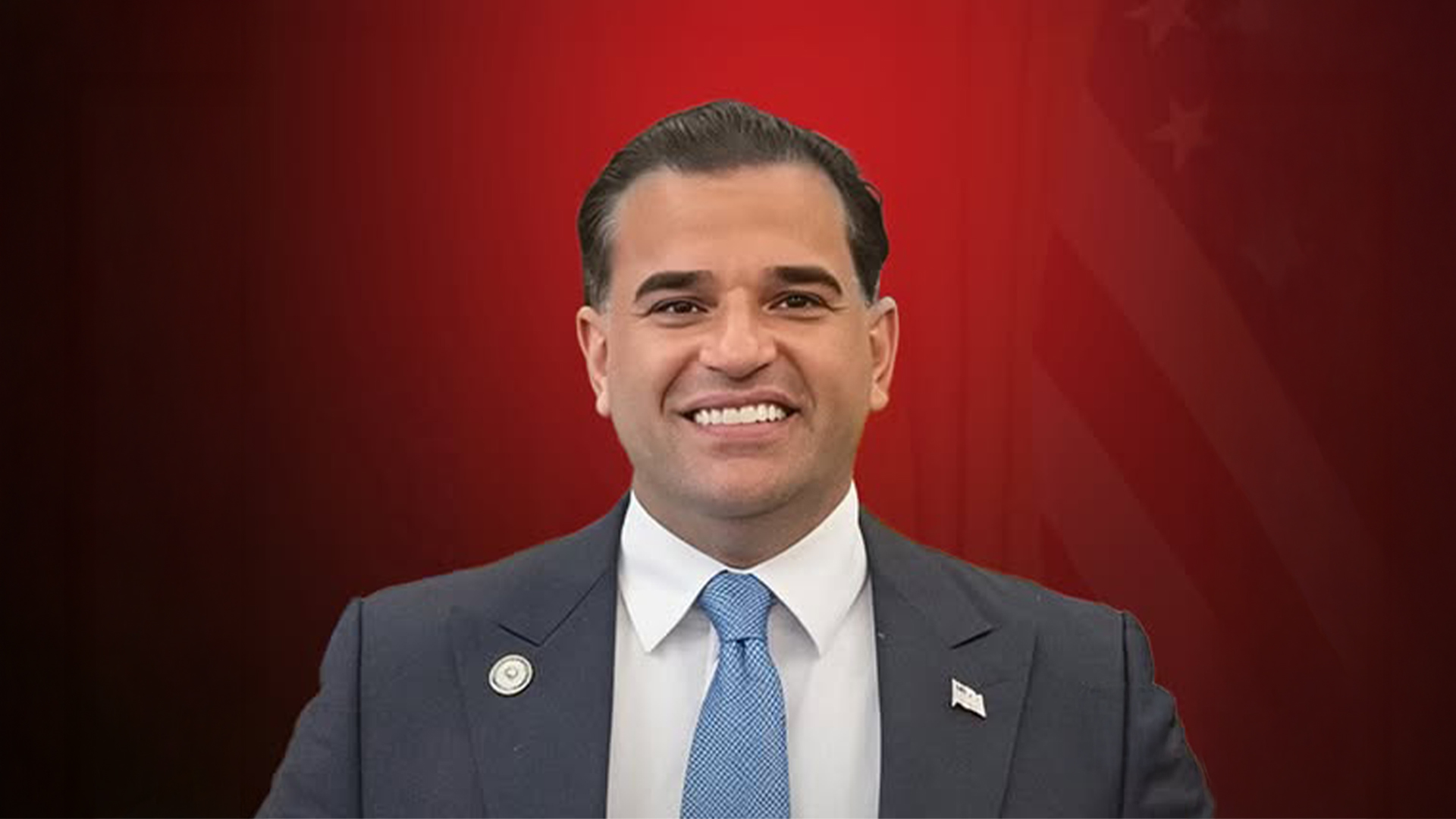U.S. Envoy Savaya: We Continue to Support Iraq Towards a Strong, Militia-Free State
U.S. Envoy Mark Savaya, via an X post, reaffirmed support for a "strong, independent, and militia-free" Iraq, praising its democratic progress and calling its people the nation's "most valuable resource" ahead of pivotal elections.

Erbil (Kurdistan24) – In a statement that underscores Washington’s growing engagement with Baghdad amid Iraq’s deepening political and environmental challenges, the United States Special Envoy to Iraq, Mark Savaya, reaffirmed his government’s commitment to supporting Iraq’s progress toward a “strong, independent, and militia-free state.”
Posting on his official X account on Friday, Savaya praised Iraq’s achievements in recent years, describing its people as the nation’s “most valuable resource” and expressing optimism about its democratic trajectory.
“Iraq’s future looks bright thanks to its talented and vibrant people, the most valuable resource any nation has,” Savaya wrote. “In recent years, Iraq has made significant progress. As the country prepares for a pivotal moment in its democratic process, let’s maintain the momentum. The United States stands with Iraq as it moves forward: strong, independent, and free from foreign-backed militias.”
Iraq’s future looks bright thanks to its talented and vibrant people, the most valuable resource any nation has.
— Mark Savaya (@Mark_Savaya) November 7, 2025
In recent years, Iraq has made significant progress. As the country prepares for a pivotal moment in its democratic process, let’s maintain the momentum.
The… pic.twitter.com/gikvXddGjN
Savaya’s remarks come just days after his praise for a landmark Iraq-Turkey water management agreement, a development he described as a “milestone for regional cooperation” and a reflection of the constructive diplomacy taking shape in Baghdad.
On November 3, 2025, Savaya welcomed the new Iraq-Turkey agreement aimed at resolving long-standing disputes over water sharing, calling it “a significant step toward enhancing regional cooperation and ensuring sustainable access to vital water resources.”
In his statement, he lauded both governments for demonstrating a willingness to collaborate on a matter critical to Iraq’s stability, adding that “the United States reaffirms its strong commitment to supporting Iraq and its people in their pursuit of greater stability, prosperity, and a sustainable environment.”
The accord comes at a time when Iraq faces one of the gravest water crises in its modern history. Years of reduced river flow from neighboring countries, outdated infrastructure, and intensifying climate change have pushed the nation toward what officials warn could soon become an irreversible environmental disaster.
Also on Friday, Iraqi Prime Minister Mohammed Shia al-Sudani sounded an alarm about the severity of the situation, saying Iraq has entered “a genuine water crisis.”
Speaking during a public gathering in Qadisiyah Province, where residents of the Ghammas district had staged demonstrations over water shortages, Sudani warned that many of the country’s reservoirs were “rapidly drying up.”
“The water crisis is real,” the Prime Minister said. “Some of our water reservoirs are almost entirely dry, and even the water pumping stations in Baghdad have partly stopped operating. Citizens must understand that the country is facing a serious shortage.”
He emphasized that the government is doing its utmost within its limited capacity to manage the crisis using existing water reserves, while urging citizens to recognize the scale of the challenge and to cooperate in water conservation efforts.
Iraq has long suffered from chronic water scarcity exacerbated by reduced flows in the Tigris and Euphrates Rivers, outdated irrigation systems, and the accelerating effects of climate change.
In May 2025, the Iraqi Ministry of Water Resources warned that both rivers could run dry by 2040 if the current trend continues unchecked. Temperatures in Iraq are rising nearly twice as fast as the global average, worsening droughts, shrinking farmlands, and accelerating desertification, particularly in the southern provinces.
The United Nations estimates that at least seven million Iraqis are already affected by severe water shortages, forcing thousands of families to abandon their lands due to salinized soil and declining crop yields. Iraq’s southern marshlands, once a UNESCO World Heritage site, have dramatically shrunk, threatening wildlife and displacing traditional communities that depend on agriculture, buffalo herding, and fishing.
Environmental experts warn that without urgent intervention, the worsening drought could fuel mass migration, unemployment, and potential social unrest.
The new Iraq-Turkey agreement, strongly endorsed by Savaya, represents an important strategic and humanitarian breakthrough. It aims to balance Turkey’s upstream dam projects with Iraq’s urgent need for consistent downstream water flow — a critical step toward mitigating one of the most pressing environmental crises in the Middle East.
For Washington, the accord also fits into a broader vision of a stable and sovereign Iraq, one capable of addressing internal challenges without interference from foreign-backed militias or external actors.
Savaya’s dual message — celebrating Iraq’s democratic and diplomatic progress while underscoring the need for independence from militia influence — reflects a coordinated U.S. policy that blends support, encouragement, and conditional partnership.
As Iraq approaches a pivotal political juncture, the message from Washington is unmistakable: the United States remains committed to standing beside Iraq, but its partnership is tied to Baghdad’s ability to strengthen state institutions, preserve sovereignty, and secure freedom from armed non-state actors.
Savaya’s recent statements — both on democratic progress and on regional cooperation — encapsulate Washington’s evolving approach: a vision of Iraq not as a battleground for competing powers, but as a sovereign nation reclaiming its place as a cornerstone of regional stability and hope.